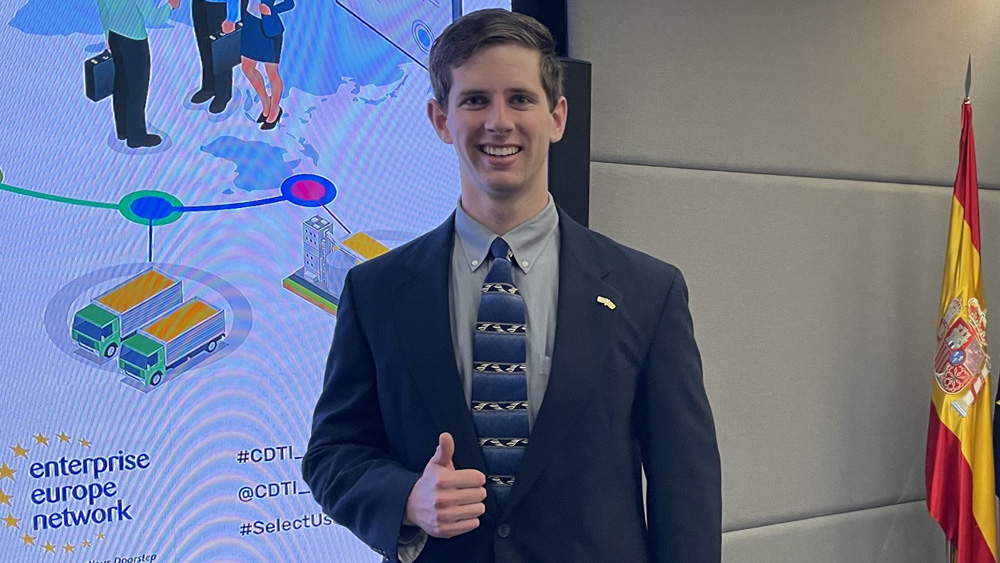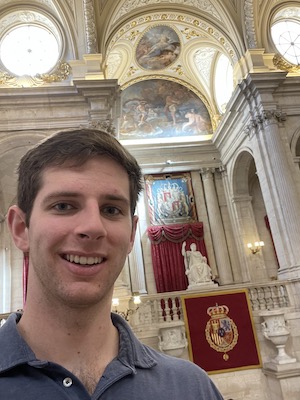
Austin Kees, an industrial engineering senior, started a unique co-op opportunity this semester — working with the Department of Commerce at the U.S. Embassy in Madrid, Spain.
Kees applied and was accepted into the spring 2023 cohort of the Texas A&M University Public Policy Internship Program (PPIP), a program that connects Aggies of all majors to policy opportunities in Washington, D.C., Austin, Texas, or international locations. In the past, PPIP partnered with the U.S. Embassy for an internship in Madrid before the COVID-19 pandemic, but when it came time to start applying in 2022, that location was not available for Spring 2023. Instead, Kees did his own research and, thanks to the help of connections in PPIP, secured his spot with the U.S. Commercial Service office in Spain.
“It was very fortuitous, to say the least,” Kees said.
As part of the International Trade Administration, the U.S. Commercial Service in Spain focuses on bringing Spanish business to the United States and vice versa. The office includes trade specialists from a wide variety of industries — from hospitality and tourism to advanced manufacturing and more.
“At the end of the day, the best way to describe our objective is to understand that we serve taxpayers by increasing U.S. jobs and growing America’s economy,” Kees said. “We either help U.S. companies become more profitable by exporting to Spain or create jobs in America by attracting Spanish direct foreign investment (for example, a Spanish company’s new factory) in the United States.”
Kees said he appreciated encouragement from others to pursue the benefits of a co-op, although the experience will push his graduation back one semester.
“I think the more opportunities and the wider breadth of experiences I can expose myself to will be beneficial in the long run,” he said. “I’m really looking forward to seeing the inner operations of an embassy and exploring potential career paths there.”

While working in policy may not be the first thought for an engineering internship, Kees said it is misleading to think policy and engineering exist in separate spaces.
“Engineers drive policy, and policy drives the work of engineers,” Kees said. “I think a classic example for industrial engineering is policy in health and human factors. Think about the Occupational Safety and Health Administration; think about other regulations that you have for health and safety in manufacturing plants. That's a very typical way in which engineers affect policy and policy affects the engineer.”
He also explained that the Creating Helpful Incentives to Produce Semiconductors and Science Act of 2022 is another relevant, modern example.
“This policy to manufacture semiconductors will affect many engineers for years to come, and engineers will affect the implementation of the policy. I am truly excited to have an internship with the U.S. Commercial Service while this act takes effect because the Department of Commerce is responsible for distributing its funding.”
Kees encouraged other students to stay open to new opportunities.
“You may be going in one direction and then pivot suddenly,” he said. “You never know what's going to happen. If you want to explore something, don't shy away just because it's not in your area of specialty or what you're familiar with.”